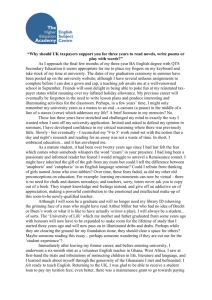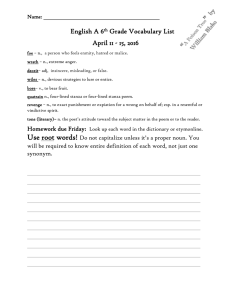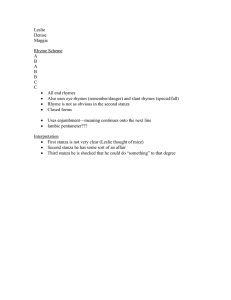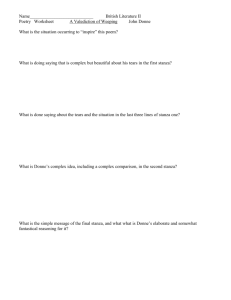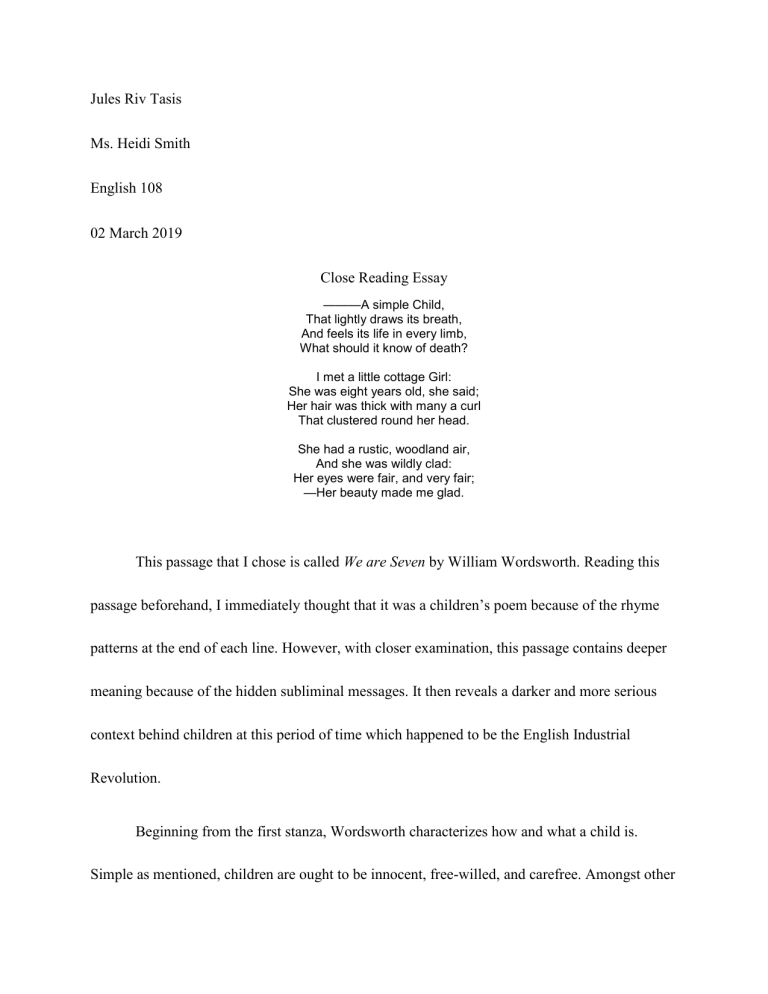
Jules Riv Tasis
Ms. Heidi Smith
English 108
02 March 2019
Close Reading Essay
———A simple Child,
That lightly draws its breath,
And feels its life in every limb,
What should it know of death?
I met a little cottage Girl:
She was eight years old, she said;
Her hair was thick with many a curl
That clustered round her head.
She had a rustic, woodland air,
And she was wildly clad:
Her eyes were fair, and very fair;
—Her beauty made me glad.
This passage that I chose is called We are Seven by William Wordsworth. Reading this passage beforehand, I immediately thought that it was a children’s poem because of the rhyme patterns at the end of each line. However, with closer examination, this passage contains deeper meaning because of the hidden subliminal messages. It then reveals a darker and more serious context behind children at this period of time which happened to be the English Industrial
Revolution.
Beginning from the first stanza, Wordsworth characterizes how and what a child is.
Simple as mentioned, children are ought to be innocent, free-willed, and carefree. Amongst other
vocabulary words, I think that these words embody what a normal child today would be like.
Next line, it says “That lightly draws its breath.” What I could comprehend from this line is that children are peaceful in their natural state and are unaware of life’s tribulations. As the first phase of life, serenity and tranquility blankets the life of children. Each part of a child’s body is considered as delicate like flurries of snow as it says in the third line and the limbs are as fragile as a stuffed toy. “What should it know of death?” is the last line of the stanza which represents the purity of a child and its naivety of impending death.
Moving forward, the second stanza is more of a novel approach. It follows a story about the narrator meeting an eight-year old and becomes curious of her. In the first line, it says that “I met a little cottage girl.” During the 18 th
century, Great Britain faced a major economic change, and this changed every aspect of how people lived during these times. From that line, I can relate this to a little humble girl that used to work in the city but now live somewhere far off where cottages are located. It doesn’t necessarily mean that she lives in a cottage but a place where she lives peacefully. “She was eight years old, she said” means that as young as she may be, she is already in situations where she is obligated to take responsibility of her actions. Due to the industrial revolution, many children had to work under dangerous conditions for many long hours and this included children ages six years old and above. In the next line, it mentions her thick, curly hair that covered her head. From my perspective, I think this means that her life is full ups and downs and she is quite an active child.
For the third stanza, more traits and qualities of are shared by the narrator. “She had a rustic, woodland air…” From the Oxford English Dictionary, the definition of rustic is “of, relating to, or characteristic of the countryside (as opposed to the town); rural.” The atmosphere around the child that the narrator met was very simple and classy just like the definition of rustic.
In the next line, it says that “she was wildly clad.” This line stands out in the third stanza because
I think it represented the way of living of this girl. She is dressed unproperly because of the wild mess she is wearing. This represents that she comes from a poor family and that she must’ve been tired from all day’s work. Children who were rich didn’t just roam around places and answering to a stranger’s questions and statements. Overall, the whole mood of the passage is somewhat serious yet curious in a way. I could sense that each line of each stanza yearns to find more information about the girl the narrator seeks to know. The underlying theme of the passage
I’ve chosen is that children aren’t as innocent as they may be if they have undergone so many things in life. The events you experience continuously shape who you are and unfortunately, the children during these times faced it at a rather harsh way.

